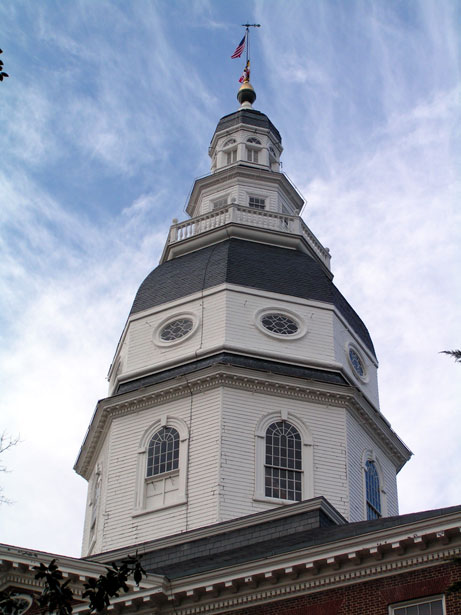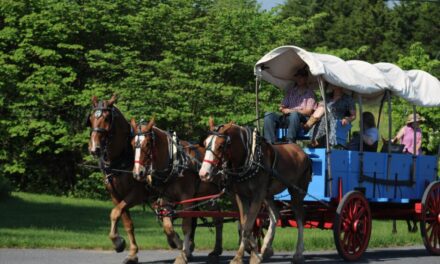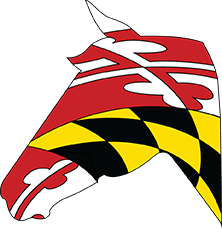 by Jane Seigler, president of the Maryland Horse Council
by Jane Seigler, president of the Maryland Horse Council
The 2017 Maryland Legislative session has ended. During the 3 month session, 1,200 bills were introduced in the Senate, and 1,661 in the House, for a total of almost 3,000 bills. Each week during session, MHC legislative committee member Kim Egan Rutter scanned all bills introduced that week, flagging those of interest to the horse industry and the broader equestrian community. During our weekly conference call, we evaluated these new bills, discussed and arrived at our position, and determined our lobbying strategy. During the course of the session, the MHC Legislative Committee closely monitored about 30 bills (plus their cross-filed counterparts) that could have an effect on horse people, their farms, businesses and even their pets. We testified at a number of hearings, wrote and submitted written testimony on a number of other bills, and took formal positions without extensive testimony on others. Although budget constraints caused us to cut back on the use of our professional lobbyist, Frank Boston, nevertheless, our all-volunteer army was a force to be reckoned with, and legislators and other interest groups gave us repeated recognition as a significant and respected group.
As has been the case in recent years, we worked on a number of bills related to deer hunting on Sundays. This issue has consumed the resources of MHC (as well as the Legislature) for many years. Prior to the 2016 legislative session, we worked on a compromise position that we hoped would put the issue to bed. The compromise bill, which would have permitted Sunday deer hunting in the firearms season, statewide, until 10:30 am, did not advance in 2016 for technical reasons, not for lack of support. In the summer of 2016, the Horse Council, the Montgomery County Farm Bureau, the Montgomery Agricultural Producers, and MHC members TROT and the Potomac Hunt, among other groups, worked with Del. David Fraser-Hidalgo of Montgomery County, to craft a similar bill that would apply in Montgomery County only.
After lengthy negotiations, the final bill (HB310) called for hunting until 10:30 am on Sundays throughout the deer seasons (bow and firearm) and preserved the existing three full day Sundays (one for bow, one for firearm and one for the Junior day). The bill will sunset in five years, during which data on its effect on the deer population can be collected. Because the County Council was threatening to put in its own, all day/all Sundays bill, and because the bill adopted the “Sunday mornings only” approach of our own proposal, MHC supported the bill. It is noteworthy that during the hearing before the powerful Senate Education, Health and Environmental Affairs Committee, the Chair, Senator Joan Carter Conway, who has been a great supporter, asked “where are my horse people?” and called the MHC President up to the witness table to ensure that we were on board with the bill – significant evidence of our growing presence in Annapolis! The bill passed both houses, and as of this writing, awaits signature by the Governor. It is our hope that this bill can become a template of a statewide resolution of this thorny issue.
This hope may be starting to become reality, as the Kent County Sunday hunting bills (SB629 and HB312), which initially sought to allow Sunday hunting on private land all day on all Sundays, were amended to restrict that to mornings only in the firearms season until 10:30 am, except for the Junior Day, and one other Sunday in the firearms season. The bill would still allow for all-day/all-Sundays in the bow season. The House version of the bill passed both houses. Similarly, the Wicomico bill (HB 894), which initially called for all day Sunday hunting on the first Sunday of the bow season and on all Sundays in the firearms season, was amended in the Senate committee to provide for Sunday hunting until 10:30 am only in the firearms season. As of this writing, it does not appear that the House had time to approve the Senate-amended bill before the Legislature adjourned at Midnight on April 10, so the Wicomico bill is probably dead for this year.
Other bills we were active on included SB178/HB606, which concerned the fate of the Bowie Race Course Training Center. As initially drafted, the bill would have allowed for the State to purchase or condemn the Center. We testified in favor of preserving equestrian use, and it appears that the Maryland Jockey Club has re-committed to preserving the site as an equestrian training center. The bill was substantially amended to include provisions for funding improvements to several tracks as well as the Bowie facility, and the Senate version passed.
We successfully testified against a proposal (SB172/HB152) to shift the cost of the Maryland Racing Commission and the International Thoroughbred Race from the State to the Purse Dedication Account.
SB99/HB171 creates a study to review methods of diverting and beneficially reusing organic waste. The law expressly states that the Maryland Horse Council must have a seat at the table. Both bills passed both houses.
There are dozens more bills that we weighed in on, concerning, e.g., land preservation easements (we supported HB155, which passed), standards for animal cruelty (we supported SB790/HB455, which passed), creation of a State bond to support capital improvements at Fair Hill ($100,000 bond was approved). We also monitored bills on many, many more topics, e.g., immunity from civil liability for emergency veterinary care, regulation of kennel licensing, farm labor, tax issues, fox hunting regulation, and more. A complete summary of all the bills we followed and what action we took on them, and their ultimate outcome can be found here: http://www.mdhorsecouncil.org/legislative-blog. If you have any questions about any of these bills, please let us know.
Finally, MHC, in conjunction with the Maryland Horse Industry Board and other industry partners, hosted our 3rd MD Horse Industry Day in Annapolis on Jan. 31. Hundreds of diverse horse people from around the Maryland came to the State’s Capitol to advocate for the industry and meet their legislators, and learn how to effectively lobby at the grass roots level. We had a great turnout of elected officials and cabinet secretaries and other Hogan administration officials. Next year we are looking forward to an even bigger and better event, and we hope you can join us in making our voice heard to our legislators!













